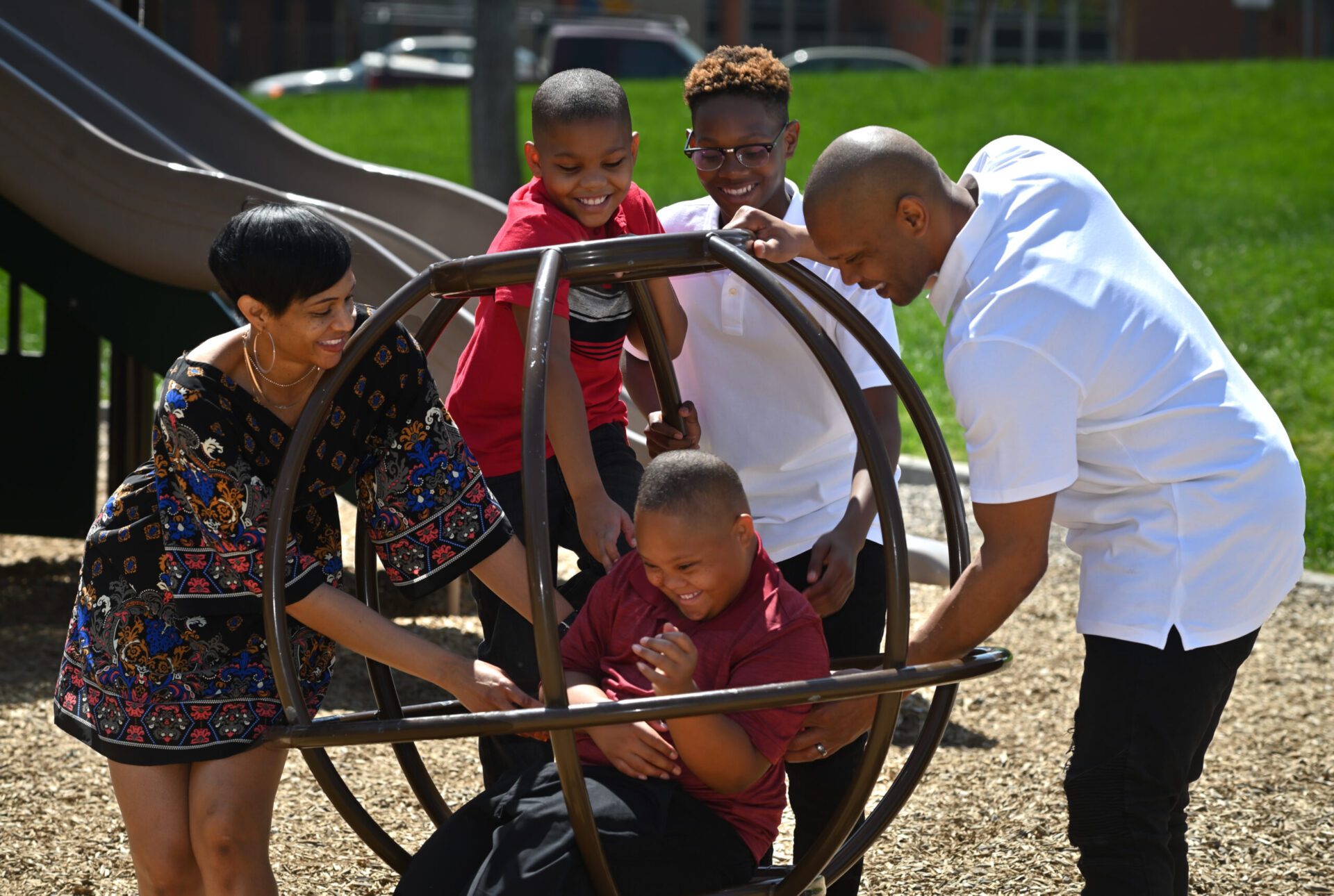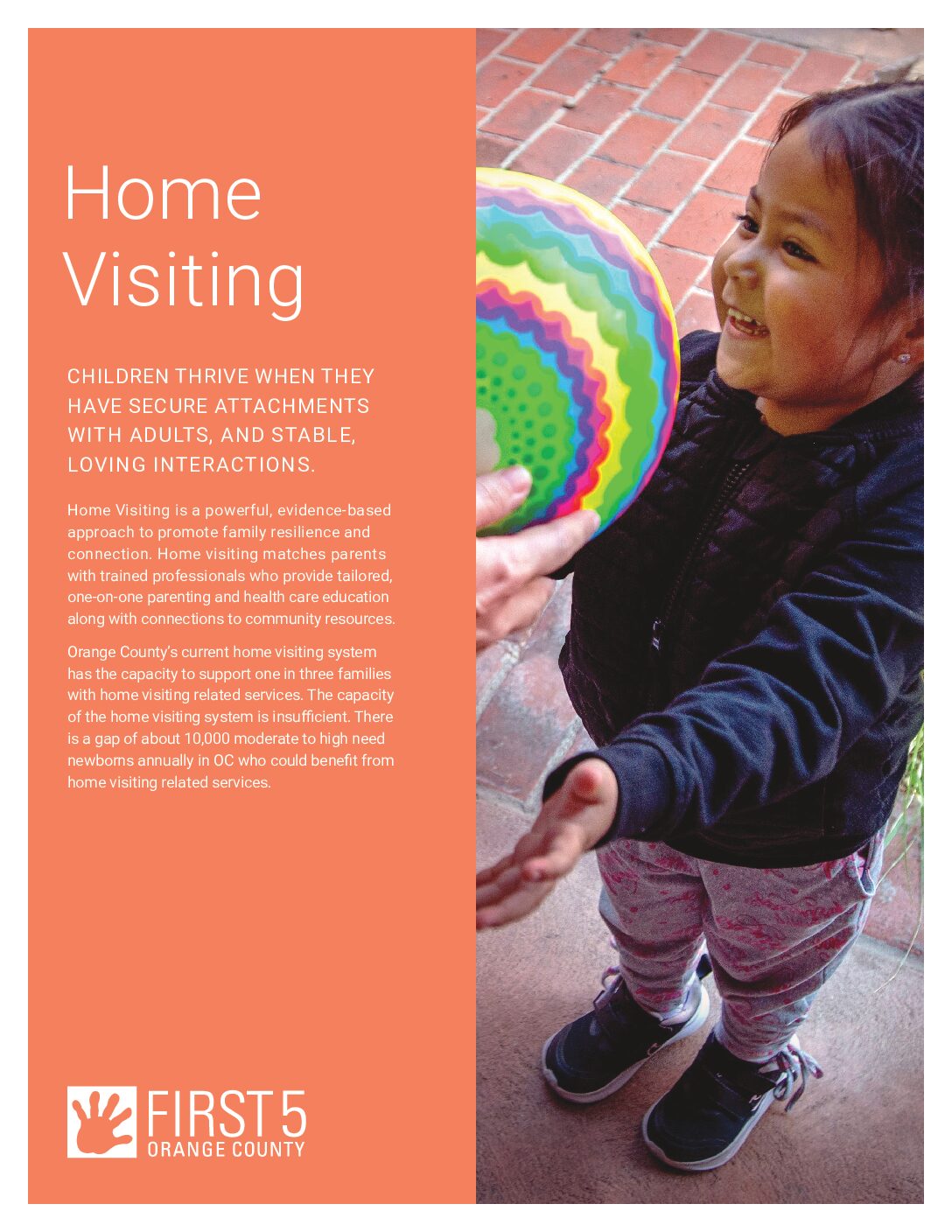Strong Families, Strong Kids

At First 5 Orange County, we know that strong families support healthy, resilient children. Parents and caregivers who have internal and external resources can withstand the pressures of life’s challenges and recover from stressful events.
We want all children to reach their full potential, and that means ensuring that every child, parent, and caregiver has the tools they need to thrive — even while navigating difficult and challenging situations.
Research shows that children in crisis during their formative years can experience negative effects throughout their lifetime, even as an adult. Stresses sustained as young children are linked by research to chronic health problems, mental illness, and substance use problems in their adult years.
Home Visiting
Children thrive when they have secure attachments with adults, and stable, loving interactions.
Home Visiting is a powerful, evidence-based approach to promote family resilience and connection. Home visiting matches parents with trained professionals who provide tailored, one-on-one parenting and health care education along with connections to community resources.
Orange County’s current home visiting system has the capacity to support one in three families with home visiting related services. The capacity of the home visiting system is insufficient. There is a gap of about 10,000 moderate to high need newborns annually in OC who could benefit from home visiting related services.
